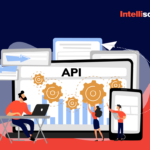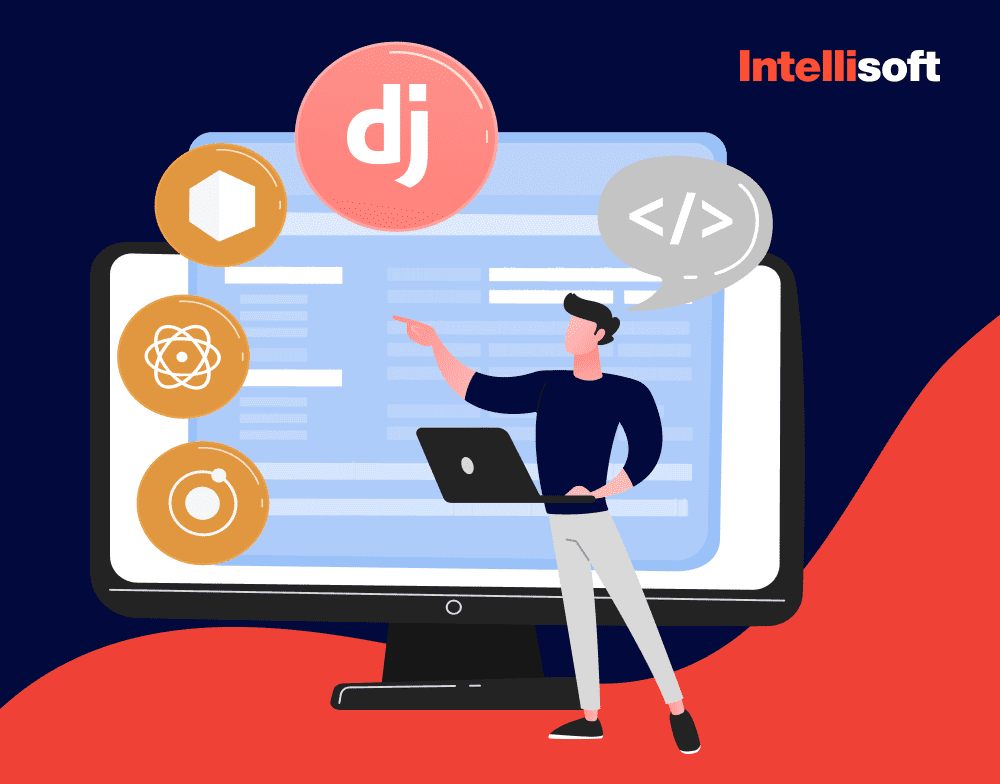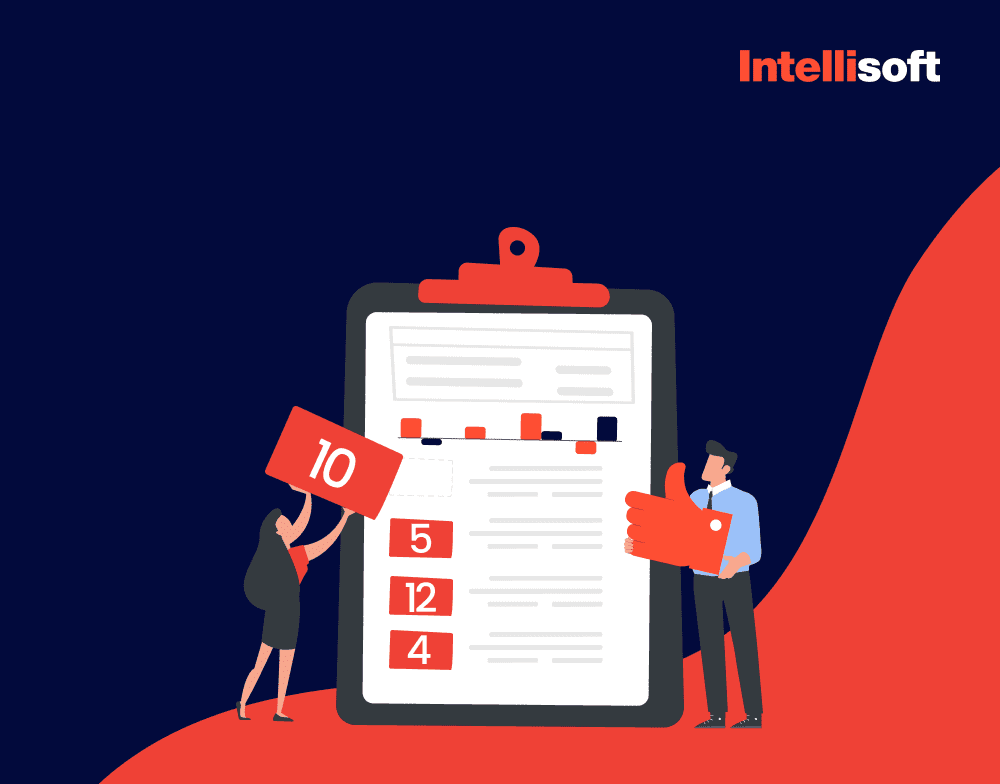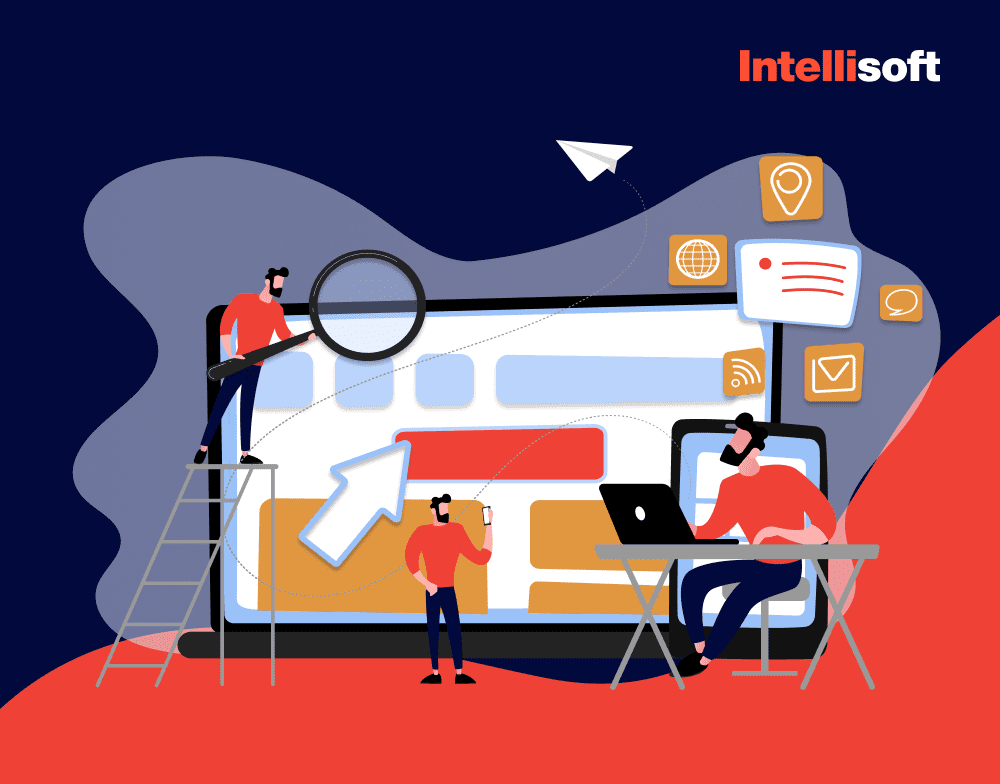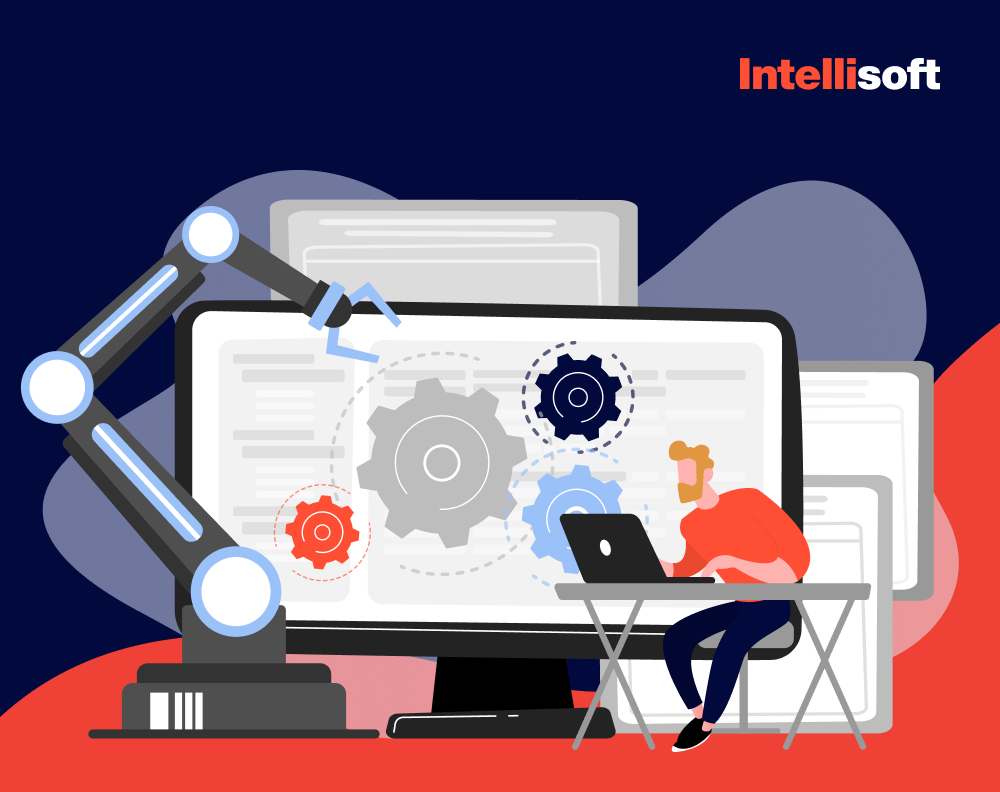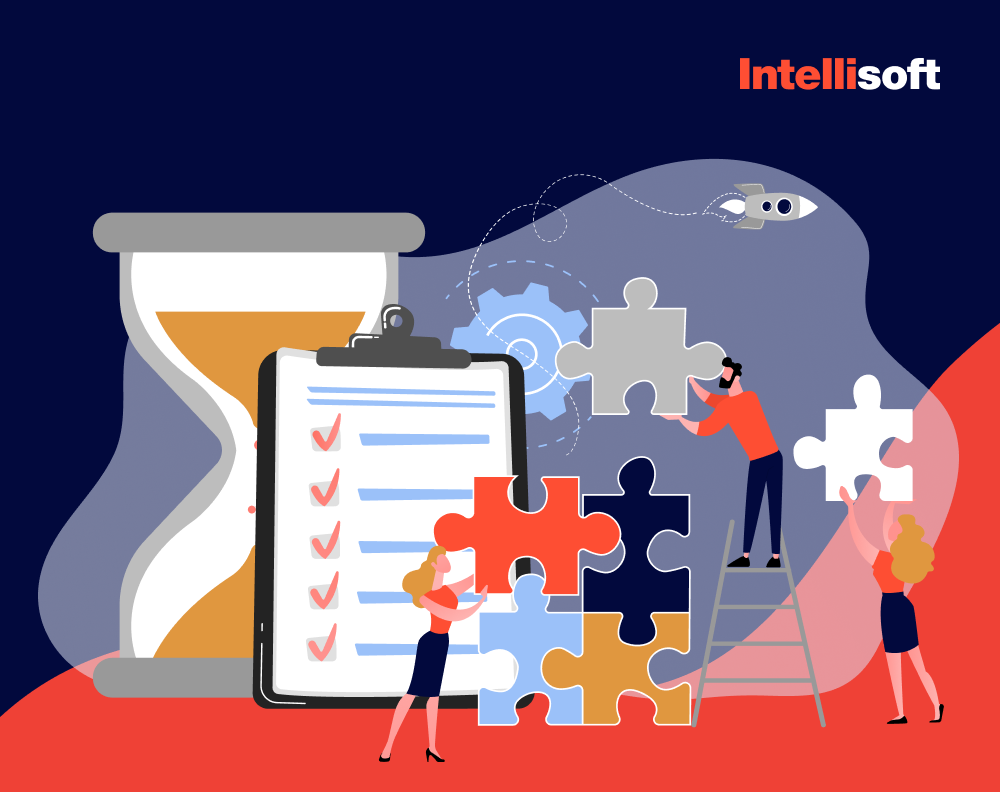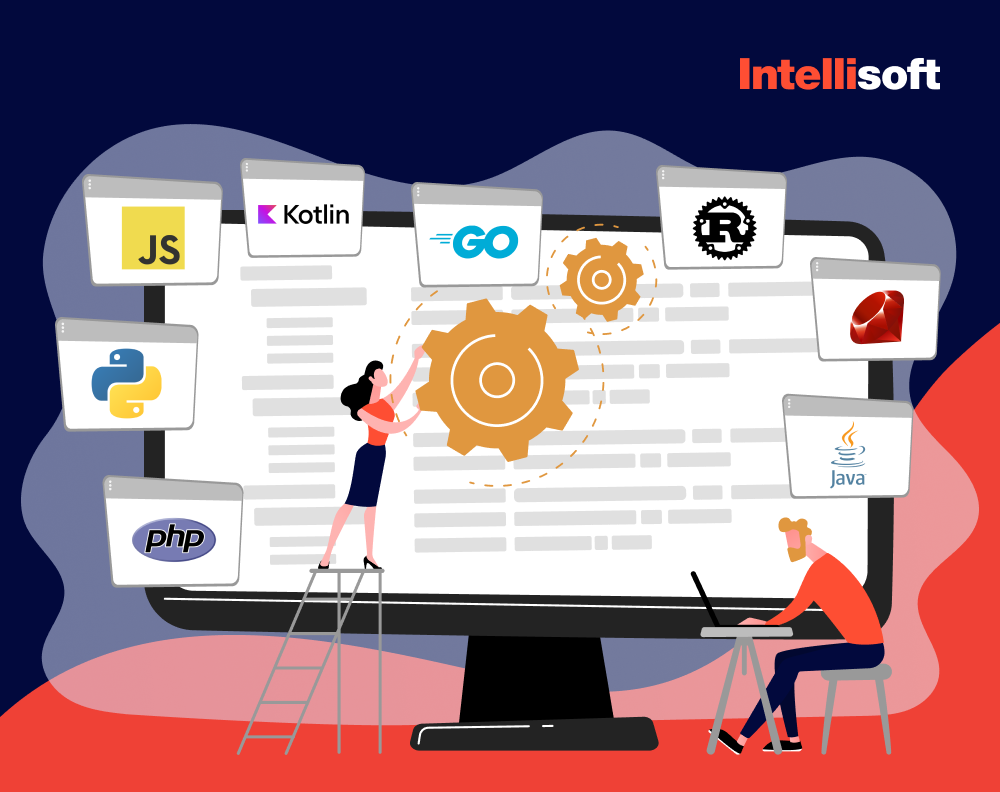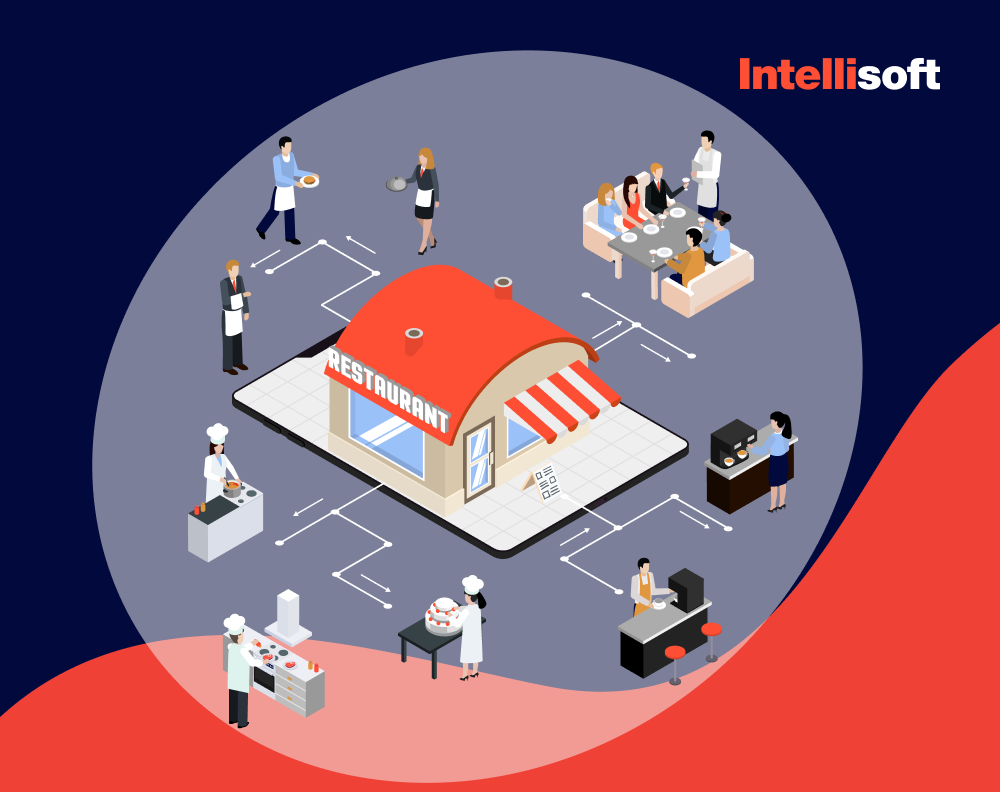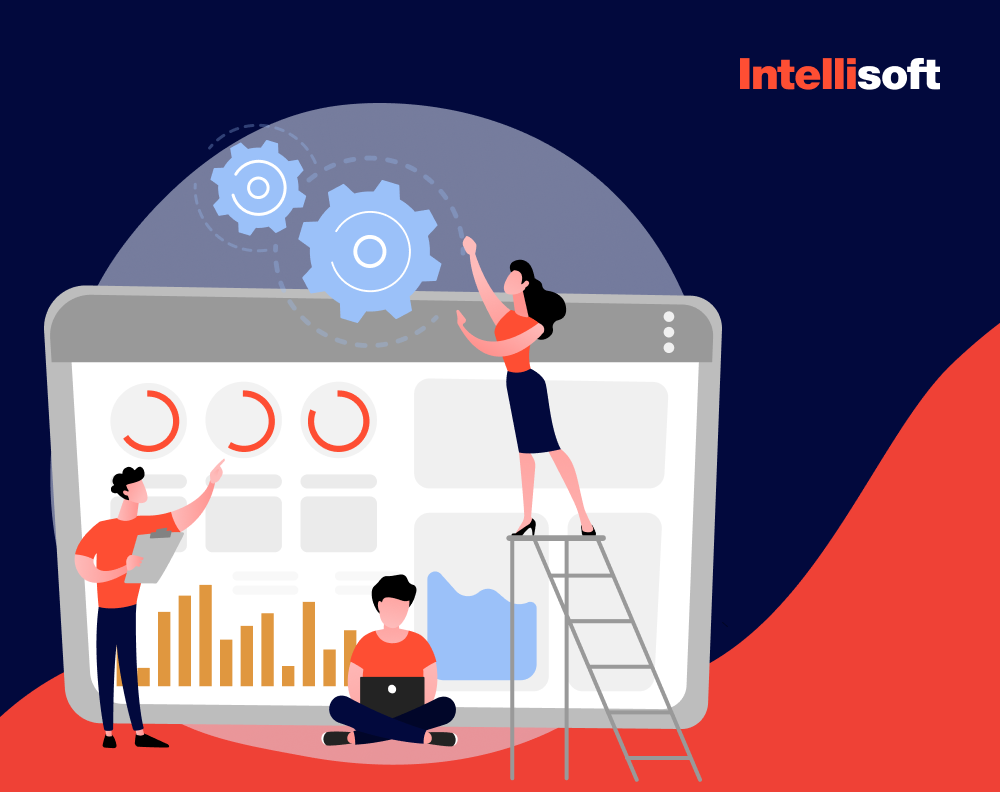Is Delphi programming language dead? Well, it might be tagged as “dying,” but it’s far from obsolete in many business domains. Even as developers increasingly gravitate toward modern languages, Delphi applications remain integral to numerous industries. This approach still powers essential business operations.
This exciting contrast—the shrinking community of developers versus the enduring reliance on this language within organizations—raises some compelling points. In this article, we’ll find out is Delphi a programming language and why it endures despite the challenges. Also, we’ll explain how IntelliSoft supports clients in maintaining their solutions and transitioning away from them when the time is right.
As Marco Cantù, author of “Delphi Programming,” said, “Delphi’s strength lies in its rapid development environment and the ease with which it allows developers to create professional-looking applications.”
Table of Contents
What Is Delphi Programming Language
Delphi is a robust platform designed to streamline software application building with impressive speed and efficiency. Let’s delve a bit into the history of Delphi programming language. Since its debut in 1995, this language quickly became a go-to for developers due to its ease of use and ability to accelerate the application development process (RAD). Additionally, it seamlessly integrates object-oriented programming (OOP) principles, which adds to its versatility and appeal among software developers.
So, what can you build with Delphi? The options are virtually limitless. Whether it’s antivirus programs, system utilities, backup solutions, or even cutting-edge technologies like artificial intelligence and machine learning, Delphi is often the engine behind the scenes. Whether working on a simple utility or a complex system, this language equips you with the flexibility and power needed to turn your concepts into reality.
How Delphi Works & Architecture?
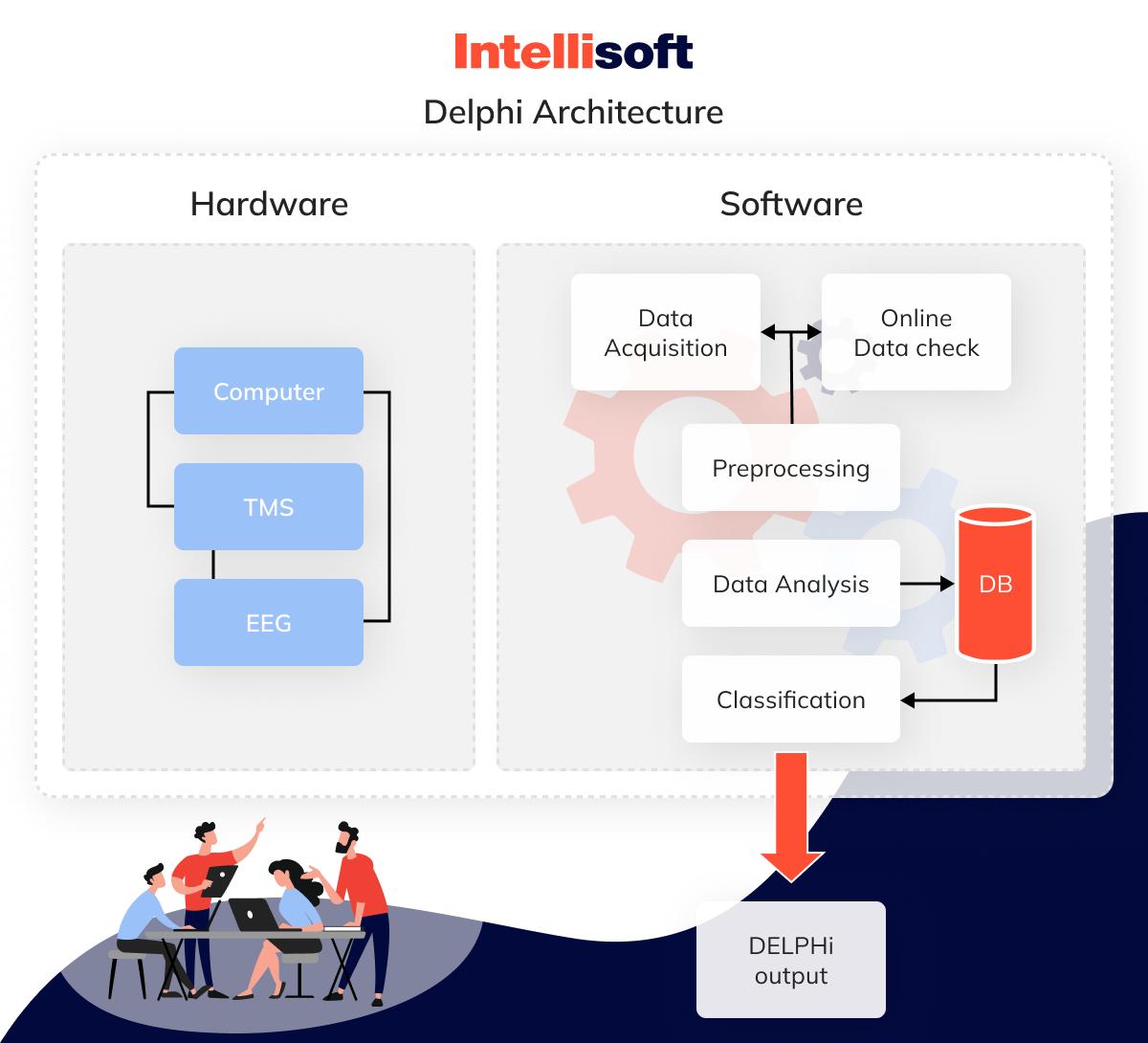
Delphi, now known as RAD Studio, remains a powerful IDE (Integrated Development Environment) that simplifies the creation of native Windows applications. What sets it apart is its visual development approach, its strong foundation in object-oriented programming (OOP), and its ability to compile code for maximum efficiency.
Let’s dive into what makes this platform exceptional, according to the Delphi programming language wiki:
- Visual development. Delphi excels with its intuitive drag-and-drop interface, allowing developers to assemble user interfaces (UIs) quickly. Whether you’re positioning buttons, labels, or entire forms, this method significantly speeds up the development process, making it particularly appealing for beginners.
- Object-oriented programming (OOP). This programming language is built on the principles of OOP, enabling you to define classes, create objects, and establish inheritance. This approach promotes code reuse and modularity, making applications more accessible and maintainable.
- Compiled code. Unlike languages interpreted at runtime, Delphi compiles your code directly into native machine code. This approach results in faster, more efficient applications, delivering a smoother user experience.
- Architecture overview. This platform provides a comprehensive IDE that facilitates everything from coding and UI design to debugging and deploying applications. It leverages Delphi Pascal programming language, known for its user-friendly syntax and versatility. Reusable components simplify tasks like UI design, data access, and implementing business logic. Additionally, with its built-in libraries for tasks such as database access and networking, Delphi’s compilers ensure that applications are both fast and efficient.
By combining visual development, OOP, and high-performance compiled code, Delphi remains a top choice for developers building high-performance Windows applications.
Why Is Delphi Important?
Delphi has secured its status as a preferred programming language and development environment for several compelling reasons:
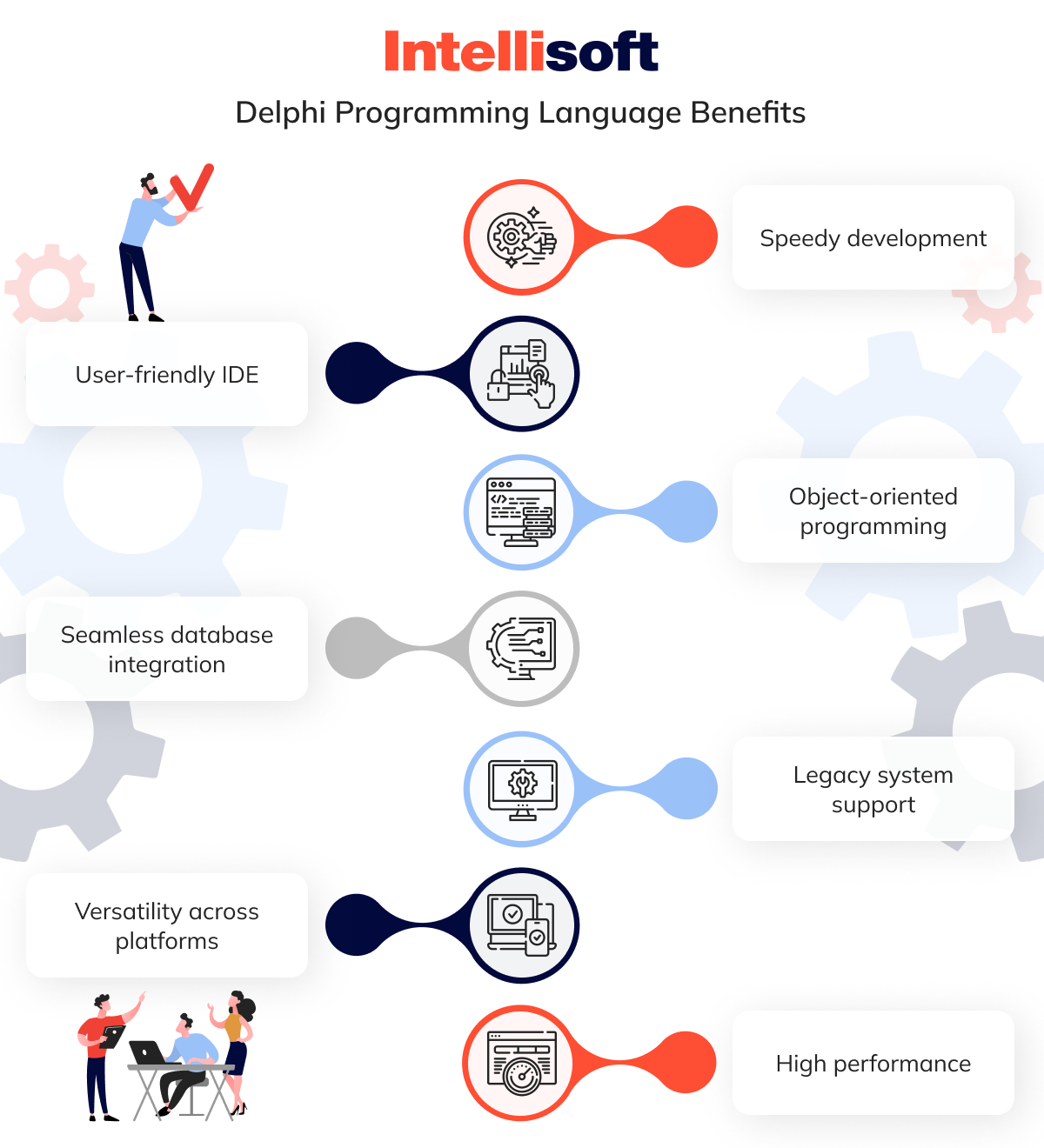
Speedy development
Delphi’s visual development tools and component-based architecture allow for rapid application creation, making it invaluable for businesses and developers needing to deliver software efficiently and swiftly.
User-friendly IDE
Integrated Development Environment (IDE) is intuitive and feature-rich. It simplifies tasks from code editing to debugging and visual design, equipping developers with everything necessary to build and manage applications easily.
Object-oriented programming
Delphi fully supports object-oriented programming based on the Pascal language, enabling developers to write modular, language, and maintainable code. This is especially beneficial for managing large-scale and complex projects.
Seamless database integration
Delphi excels in database-driven application development. Its strong support for database connectivity and data-aware components makes it a preferred choice for developers focused on database-intensive projects.
Legacy system support
Many organizations continue to depend on legacy applications developed with this programing language. Its stability and backward compatibility make it a reliable tool for maintaining and upgrading these long-standing projects.
Versatility across platforms
Whether developing desktop software, enterprise solutions, or mobile apps, Delphi’s versatility ensures it is well-suited to various domains and industries.
High performance
Delphi applications are renowned for their speed and efficiency. The language’s compiled nature guarantees that software runs smoothly, providing exceptional performance.
What Can You Do with Delphi?
Let’s look at each Delphi programming language example:
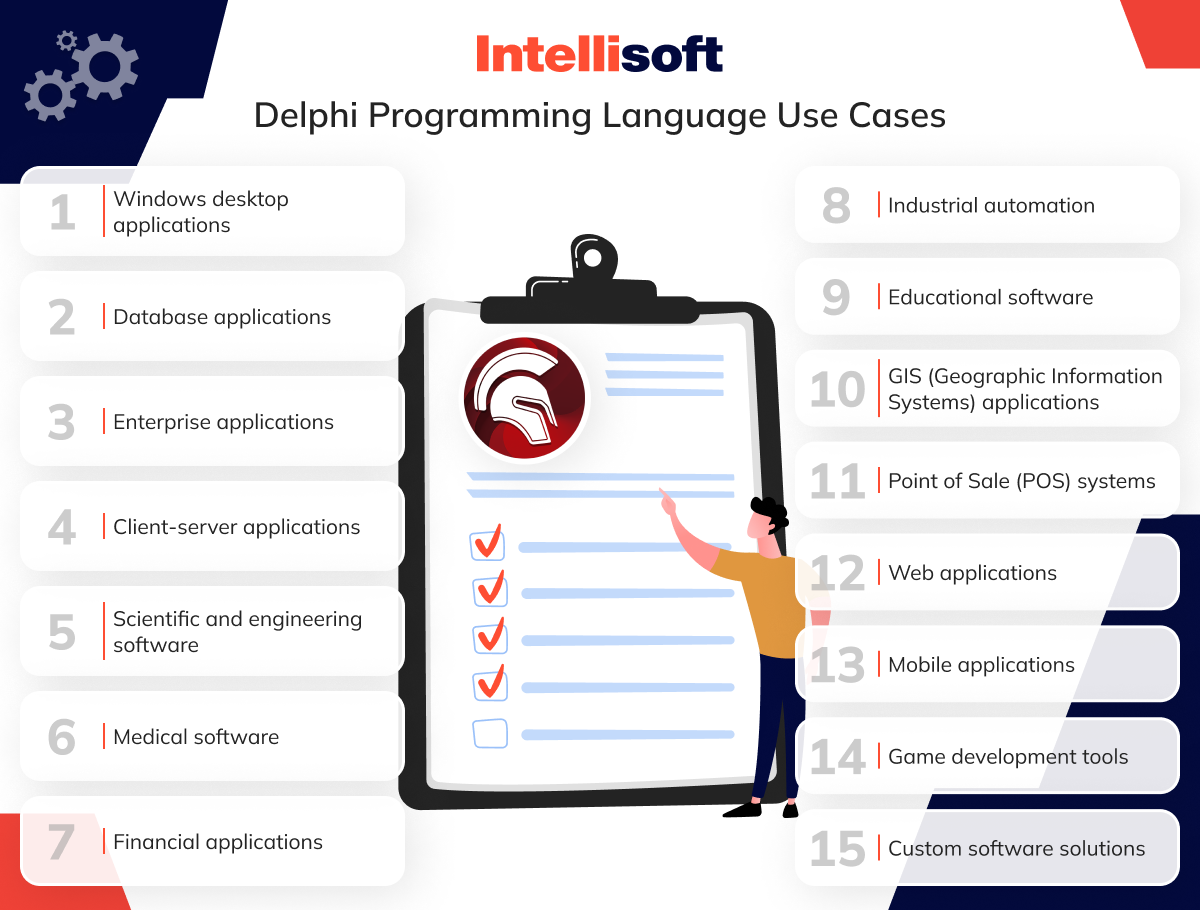
- Windows desktop applications. Delphi excels in Windows desktop development, offering a robust set of components. It makes it a top choice for creating responsive and rich user interfaces tailored to business, productivity, and entertainment needs.
- Database applications. This programming language is a strong candidate for building reliable database applications. It offers broad support for various database systems, such as Oracle, Microsoft SQL Server, and MySQL, facilitating seamless data connection and management through its data-aware components.
- Enterprise applications. Delphi is a trusted tool for developing enterprise-level software in the finance, healthcare, manufacturing, and logistics industries. It handles complex business logic and data processing effortlessly, providing tailored solutions that meet specific industry requirements.
- Client-server applications. This programming language is a dependable option for scenarios where multiple clients need to interact with a central server. It is an excellent database connectivity and support for multi-tier architecture make it ideal for developing robust client-server systems.
- Scientific and engineering software. Delphi develops software for data analysis, simulation, and modeling in science and engineering. Its powerful capabilities and user-friendly design make it a go-to for creating customized solutions in these specialized areas.
- Medical software. Delphi plays a crucial role in the medical software industry, aiding in developing healthcare management systems, medical imaging software, and patient record systems. Its ability to create visually appealing and responsive interfaces is a significant advantage in this field.
- Financial applications. It is widely utilized in the financial sector, from accounting software to trading platforms. Its support for complex mathematical and statistical operations and robust database connectivity make it well-suited for financial applications.
- Industrial automation. With its real-time capabilities and intuitive interface design, Delphi is a valuable tool in industrial automation. It’s used to develop software that controls and monitors manufacturing processes, machinery, and equipment, ensuring smooth operations in industrial settings.
- Educational software. Delphi is a popular choice in educational settings, where it serves as a tool for teaching programming and software development. Its visual, component-based approach is accessible and engaging, making it ideal for students learning to code.
- GIS (Geographic Information Systems) applications. This programming language is a powerful tool for developing GIS applications that involve mapping, spatial analysis, and geographic data visualization. Its ability to handle complex graphical components and data processing makes it highly suitable for GIS software.
- Point of Sale (POS) systems. Delphi is a reliable platform for creating point-of-sale systems in the retail and hospitality industries. It excels at managing user interfaces, handling transactions, and integrating with databases, making it an excellent choice for POS software.
- Web applications. While this programming language might not be as prevalent in web development as other technologies, it can still be used to create web applications, primarily through its WebBroker framework. This allows developers to build web-based solutions within a familiar Delphi environment.
- Mobile applications. Cross-platform capabilities allow for the development of mobile applications on both iOS and Android from a single codebase. The FireMonkey framework enables the creation of mobile apps with rich user interfaces, making Delphi a strong option for mobile development.
- Game development tools. Delphi is a valuable resource for game developers who want to create custom software components for their projects. In the gaming industry, it is used to build various tools and utilities, including level editors and asset management systems.
- Custom software solutions. Flexibility and rapid development environment make it ideal for crafting custom software solutions that meet specific business needs. Whether working under tight deadlines or requiring a highly specialized solution, Delphi offers the speed and adaptability necessary to deliver results.
Key Features of Delphi Programming
Delphi programming covers the following aspects:
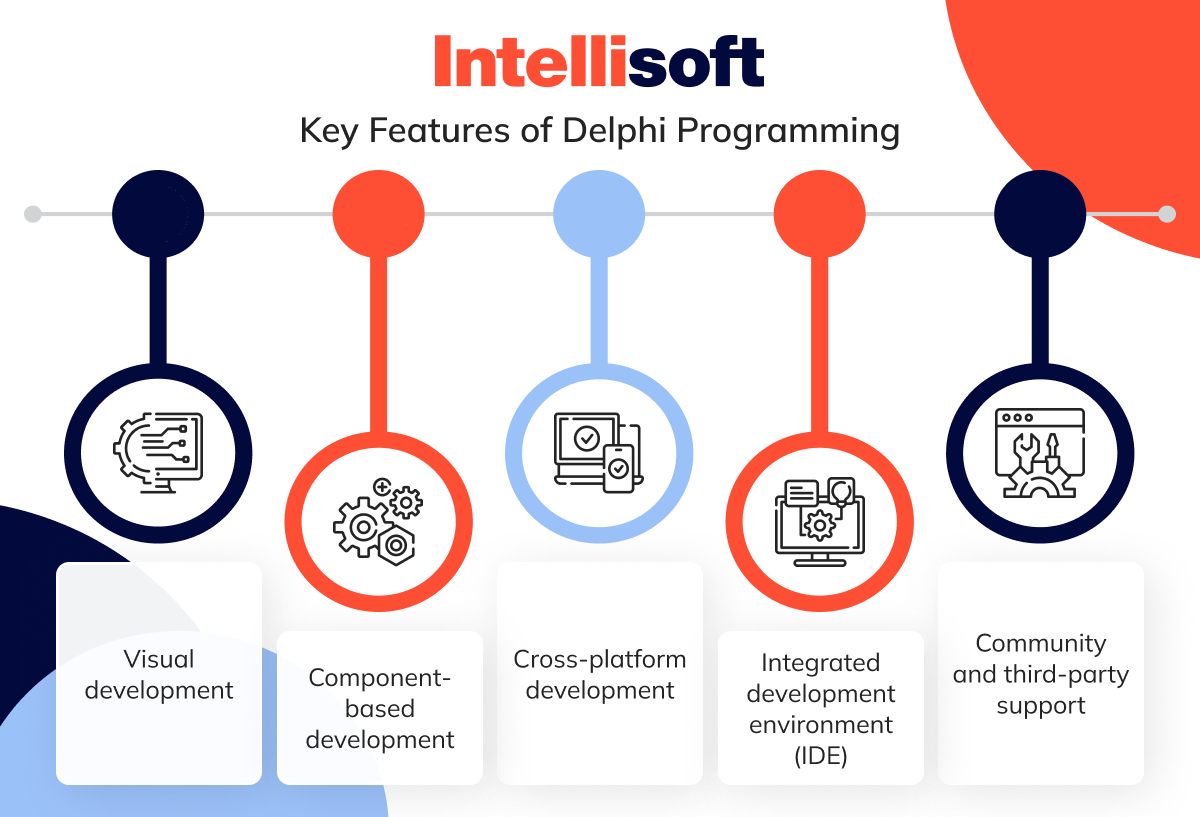
Visual development
Delphi makes development straightforward with its intuitive visual form designer. You can create stunning graphical user interfaces (GUIs) without drowning in code. This Rapid Application Development (RAD) approach accelerates your workflow, turning your ideas into reality faster.
Component-based development
This programming language champions component-based development, enabling you to craft components that can be reused across multiple projects. This means you can efficiently piece together powerful applications without reinventing the wheel every time.
Cross-platform development
Delphi’s cross-platform capabilities allow you to write code once and deploy it across various platforms—whether Windows, macOS, iOS, or Android. This flexibility ensures that your apps can reach a broad audience without extra effort.
Integrated development environment (IDE)
Integrated Development Environment (IDE) is your comprehensive toolkit. Whether writing code, debugging, or designing Delphi’s IDE offers a smooth and integrated experience, allowing you to stay focused on what truly matters—building top-notch applications.
Community and third-party support
A dynamic developer community and a vast selection of third-party tools, libraries, and components support this language. This rich ecosystem gives you the resources and support needed to enhance your projects and overcome any challenges that come your way.
Delphi vs Other Languages
Is Delphi a good programming language? Even today, Delphi remains a strong competitor in the development world.
- Fast and efficient. Built with its language, Delphi’s IDE is one of the fastest and most resource-efficient tools you’ll find.
- User-friendly design. This language perfectly balances cutting-edge functionality and user accessibility, making it powerful and easy to use.
- Intuitive bookmark system. Delphi’s bookmarking is a developer’s dream—just hit Shift + Ctrl + a number to set a bookmark, then Ctrl + that number to jump back. No extra windows or clicks are needed.
- Third-party libraries. Delphi’s power is significantly boosted by third-party libraries such as TvirtualTree and TMS components, transforming it into a highly efficient code-generation machine.
- Customizable styles. With the addition of styles, the Delphi programming language lets you tailor your coding environment with beautifully crafted themes, including those from third-party creators, all while maintaining a polished, professional appearance.
Related articles:
- Typescript vs Javascript: Which Programming Language Fits Your Project?
- Laravel vs CodeIgniter: Choosing Best PHP Framework in 2023
- PostgreSQL vs MySQL: Major Similarities and Differences between Them
- Node JS Advantages and Use Cases: Is This Environment Right for You?
- RabbitMQ vs Kafka: Choosing the Right Messaging System for Your Needs
Is Delphi Dying Out?
Delphi, a once up-and-coming programming language, is often seen as “dying out.” A look at the developer community shows that the number of Delphi developers is declining compared to other languages, and most new developers are opting for languages such as Java, Python, or JavaScript.

This has led to a growing “skills gap” as fewer and fewer professionals with Delphi experience are available. A survey by Stackoverflow, one of the best-known question-and-answer websites for programmers and developers, shows that in 2023, only 3.23% of developers worldwide (87,585 participants) will still use or be proficient in Delphi as a programming language. Even more alarming, only under 1% state they are actively learning Delphi language programming. This leads to a growing skills gap, as fewer and fewer specialists with Delphi experience are available.
Why are we holding on to this supposedly outdated technology? The answer lies in the stability and expertise that developers can offer. We have realized that many Swiss companies are still using Delphi in 2024. These solutions have proven themselves over the years and continue to fulfill their functions. If the company’s developer is unavailable, we will step in.
Delphi Still Plays a Role in These Sectors
Delphi continues to be a reliable tool in various sectors, particularly where ongoing development and maintenance of established systems are essential. Let’s explore each Delphi programming language example:

- Financial services. Banks, insurance firms, and other financial entities utilize Delphi to run applications for transaction processing, database management, and risk assessment, ensuring these operations are handled seamlessly.
- Healthcare. In settings ranging from hospitals to research institutions, this language is instrumental in developing patient management systems, imaging software, and laboratory information systems, contributing to efficient workflows and accurate outcomes.
- Manufacturing. Delphi underpins the software that drives production processes, automates machinery, and gathers vital production data, ensuring manufacturing operations remain efficient and productive.
- Logistics and transport. This solution is pivotal in the logistics and transport industries, building systems that track shipments, optimize routing, and manage fleets, helping companies operate more effectively.
- Government and public sector. Public institutions and government bodies use Delphi to develop applications that manage citizen services, tax collection, security systems, and more, facilitating the efficient delivery of public services.
Dr. Bob Swart, Delphi expert and trainer, said, “Delphi remains one of the best-kept secrets in the programming world, offering a combination of speed, power, and usability that is hard to beat.”
Where to Find Delphi Developers?
Struggling to find top-notch Delphi developers? You’re not alone. Delphi is a specialized language; finding the right talent can be challenging. But here’s the good news; there’s a smarter way to connect with the best in the field.
At IntelliSoft, we’ve built a powerhouse team of seasoned Delphi developers ready to tackle your most complex software challenges. They use the latest version of Delphi programming language and keep up-to-date with updates of the system.
Whether you’re looking to create innovative new applications or keep your existing systems running smoothly, our experts are dedicated to delivering custom software solutions that fit your needs. With IntelliSoft, you’re not just hiring developers—you’re partnering with a team committed to quality and performance.
Working with IntelliSoft means more than just filling a gap in your team. You’ll enjoy the flexibility to scale your project as it grows, backed by an international team with a track record of contributing to award-winning software. When you choose IntelliSoft, you’re choosing a reliable partner with you every step of your Delphi development journey.
IntelliSoft Experience with Delphi Programming Language
At IntelliSoft, we take pride in our key role in successfully developing and enhancing Cambio’s Daintel software, a top-tier solution in the healthcare industry. Our team of Delphi experts brought their A-game, leveraging the power of this versatile programming language to create a robust and scalable platform that revolutionized clinical workflows in intensive care units (ICUs).
This project demanded precision and expertise, and Delphi’s capabilities for developing complex, high-performance applications allowed us to meet those demands head-on. Our developers seamlessly integrated new features while maintaining the software’s rock-solid reliability, ensuring it could handle the critical needs of healthcare professionals.
The result? A highly functional, user-friendly ICU management system that improved patient outcomes and streamlined operations across multiple healthcare facilities. This success story is a testament to IntelliSoft’s ability to harness Delphi’s power to deliver innovative solutions in the healthcare sector, solidifying our reputation as a trusted software development partner.
Delphi Programming Language: Future Predictions
Delphi programming language predictions are hotly debated among developers, ranging from utter skepticism to optimism. Where most people believe it to be a “dying” language, its presence in business solutions indicates otherwise. Of course, Delphi might not catch up with the latest developments in the respective platforms or languages, and it lags by at least ten years in some areas.
But don’t count it out just yet. Delphi’s extremely loyal user base and the mountains of legacy code still running on it ensure its relevance to this day. Though Delphi is not breaking new ground in modern programming languages, it will probably be around for years in niche areas and legacy systems.
Still have questions? Contact us today to get a consultation!

